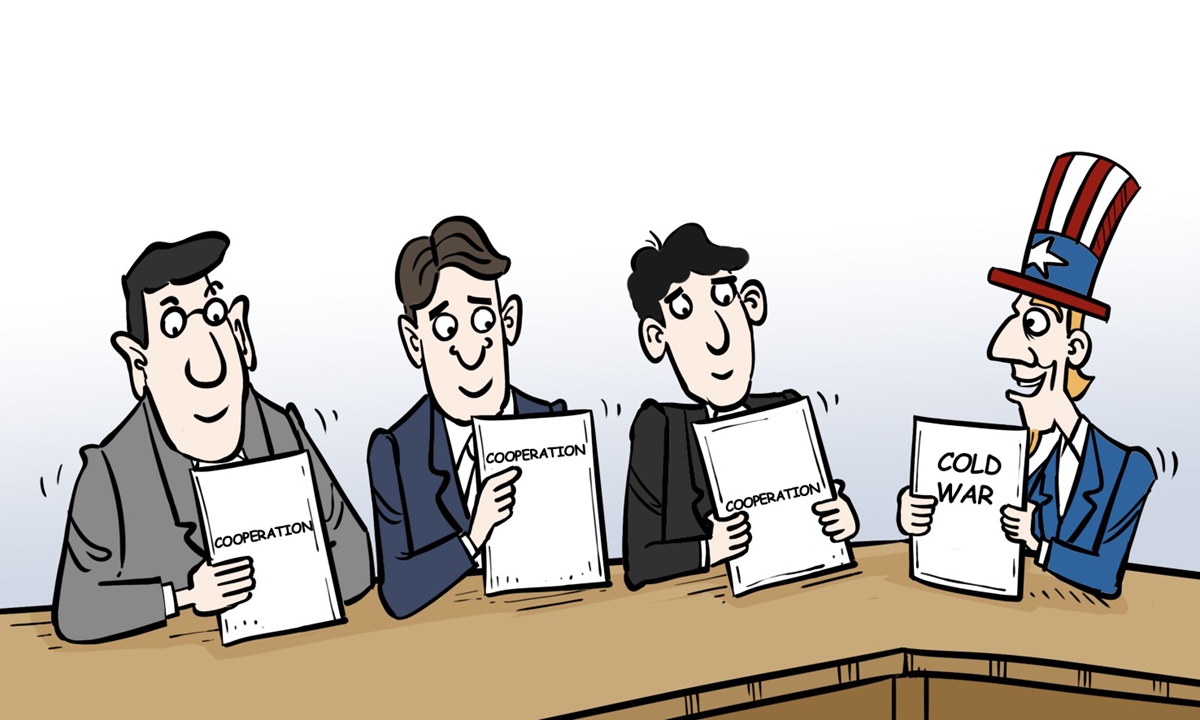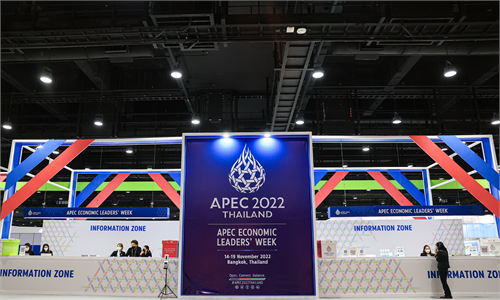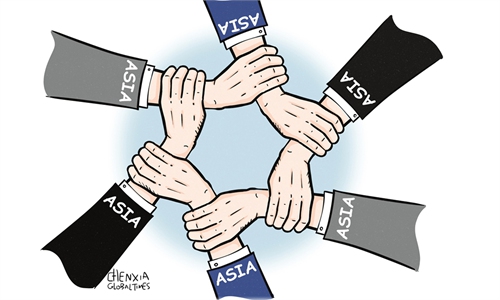Asia-Pacific’s continued success and prosperity hinges on unity against challenges

Illustration: Chen Xia/GT
Hosting three heavyweight international meetings in a row within one month has made Southeast Asia and even the entirety of the continent, the focus of the international community. Since the outbreak of the global financial crisis in 2008, the overall stable and sustainable development of the Asia-Pacific region has attracted much attention in the turbulent world. But just as the US has resorted to geopolitical confrontation and divisions in recent meetings, other countries outside the region have attempted to increase their interference in Asia-Pacific. How to prevent and resist those forces with evil intentions toward the region is attracting more and more attention from Asian countries.An important reason why the Asia-Pacific region has maintained relatively positive security and development over the past few decades is that since the end of the Cold War, Asian countries have independently chosen a development path of win-win cooperation. As the US turns its eyes to Asia-Pacific, especially when it takes containment and suppression of China as the starting point of a series of its strategic plans, the path of cooperation that has proven effective in practice in the Asia-Pacific region is facing growing challenges.
First, the economic foundation of regional cooperation in Asia-Pacific has been impacted. The "decoupling" and "broken chain" that the US is trying to promote has disrupted existing industrial and supply chains and is deconstructing the current operating system of economic globalization.
Second, regional cooperation mechanisms in the Asia-Pacific region have been squeezed by political camps and small groups. The US has been strengthening its military alliance system in the Asia-Pacific and created various small cliques that exclude and target China.
Third, the focus of the Asia-Pacific region confronts the risk of being shifted. Given the great power competition narrative, vigorously promoted by the US, as well as the boosted US military alliance in the region, the political environment in the Asia-Pacific region that focuses on economic development and improvement of people's livelihood is deteriorating.
To overcome the challenges, three aspects need to be addressed. First, effectively counteract and manage the projection of excessive US strategic anxiety. Under the profound changes unseen in a century, the US' strategic anxiety about maintaining its own hegemony has been rising and has shown a series of negative effects in handling relations with Asian countries and Asia-Pacific affairs. Asian countries need to work together to counteract the negative consequences and maintain multilateral harmony.
Second, continue looking for converging interests of security collaboration. Since the end of the Cold War, the risk of military conflict between major powers has declined significantly, and international attention has largely shifted to non-traditional security areas like the economy and finance, terrorism, ecology and the environment, and public health. However, in recent times, non-traditional security issues have been continuously politicized, overlapping into traditional security issues and superimposing their effects. Some issues have even been treated as a zero-sum game. Regional security cooperation is facing a more complicated situation. In order to better ensure food and energy supplies, maintain the stability of industrial chains and supply chains, protect the development of critical infrastructure and technologies, Asia-Pacific countries must do away with the interference of ideological factors in cooperation.
Third, continue to consolidate and strengthen regional cooperation mechanisms in the region. The ASEAN-centric regional cooperation mechanism not only has Asian characteristics but has also been proven in practice to help maintain and strengthen the cooperation of Asian countries. There is still room for further cooperation among Asian countries. Economic cooperation can be more complementary and closer.
Overall, the world is in a new period of turbulent change, and development and peace in the Asia-Pacific region are facing new challenges now. As an important power in the region, China has the responsibility to proactively participate, maintain, and shape a security environment conducive to development for the region, and to jointly build a better home in the Asia-Pacific region with lasting peace, sustainable development, and eco-friendliness in a positive interaction with neighboring countries.
The author is a senior fellow and director of the Institute for International Strategic Studies at Shanghai Institutes for International Studies. opinion@globaltimes.com.cn



